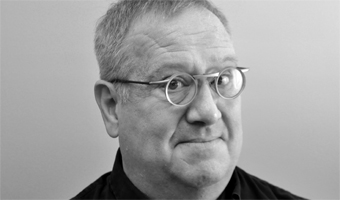Ohio University professor and Director of Creative Writing Dinty W. Moore will serve as one of five writing mentors in a national program designed to explore the intersection of science and religion.
Fifteen fellows chosen for the Think Write Publish (TWP) Fellows in Science and Religion project from a pool of almost 650 applicants will work with Moore and the other four mentors over the next two years on learning and applying the art of creative nonfiction to write compelling, original, and true stories exploring the synergy between science and religion. Fellows will each receive a $10,000 stipend, attend three intensive training workshops, and participate in a variety of events to help disseminate their stories.

Dinty W. Moore
Proposed stories include a portrayal of the importance of religion to the work of the great Renaissance astronomer Johannes Kepler; an inside look at a Catholic school on the U.S.-Mexico border that combines traditional religious training with rigorous scientific education; and a memoir about how shared religious devotion led to a reconciliation between a physicist father estranged from his humanist daughter.
The program is motivated by the belief that tensions between science and religion as a source of divisiveness in society today does not reflect the true relationship between those two human endeavors. Yet stories of science-religion harmony are not widely known. In stark contrast, stories about science-religion conflict, such as Galileo’s trial, or the ongoing battles over teaching evolutionary science, are staples of today’s culture.
Through the fellowship program, as well as a writing competition, a series of public events, and a partnership with science museums across the nation, the TWP Science and Religion program will bring to the public a diverse and inspiring set of true stories that can help foster greater awareness and appreciation for the ways that science and religion may complement one another.
The fellowship is sponsored by Arizona State University’s School for the Future of Innovation in Society (SFIS), and was made possible by a grant from the John Templeton Foundation, with additional support from Arizona State University and the Creative Nonfiction Foundation.


















Comments